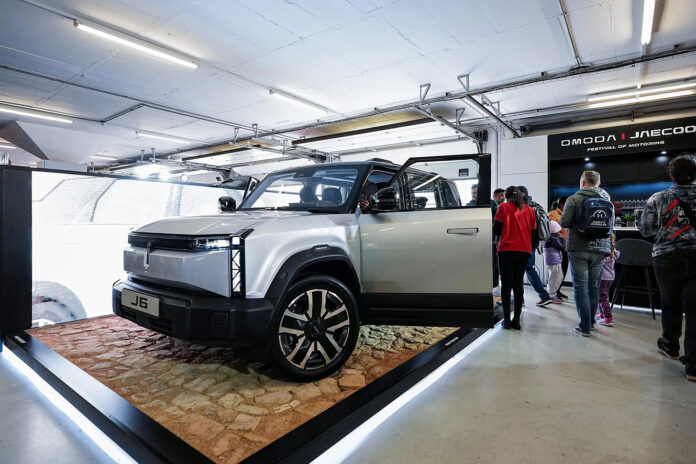Makers of Chinese car brands Omoda and Jaecoo are selling ahead of expectations, the general manager for South Africa revealed to Sunday World.
“Our goal was to exceed 1 000 units sold in the third quarter, and while we anticipated our upcoming model launches would contribute significantly to this, the Omoda C5 has already exceeded expectations.
“As a result, we reached the 1 000-unit milestone ahead of schedule,” he said. “We are ahead of our sales targets.”
Omoda & Jaecoo (O&J) South Africa general manager Hans Greyling had announced that June was a record-breaking month for the brand. Greyling said O&J sold 1 009 new passenger vehicles last month.
“Since entering the local market in April 2023 with the stylish C5 crossover, both sales and interest in brand O&J nameplates have grown significantly, driven by a dynamic product line-up that continues to resonate with an expanding customer base,” he said of the Chery-owned car brands.
“This performance reflects the increasing demand for vehicles that offer bold design, high-end features, and exceptional value, placing O&J among the fastest-growing automotive brands in South Africa.
“Crossing the 1 000 mark is more than a milestone, it shows that South Africans are responding to something fresh, exciting, and relevant,” he said.
“We’re incredibly proud of what the teams and our dealer network have achieved.”
The brand has been showing strong growth, especially since the recent additions of the C5 X Series, with further models – the Jaecoo J5 and Omoda C7 – still expected. The Jaecoo J7 and J7 SHS models performed strongly, selling 230 units collectively.
The latter is a plug-in hybrid electric vehicle (PHEV) charged via an external power source such as a home charger or a public charging station.
Greyling said the J7 SHS offers an electric-only range of up to 90km, and the larger C9 SHS up to 150km, combining the efficiency of electric driving with the versatility of petrol power for longer trips. He said PHEVs are a viable and competitive alternative to traditional internal combustion engines, providing a strategic and timely solution while the public charging infrastructure progresses steadily.
He said the home charging capability via wall boxes reduces reliance on public infrastructure. “For suburban and urban residents, this makes daily EV usage both feasible and convenient even though the national EV ecosystem is several more years away from maturity.”
He said this was a critical and achievable first step toward broader EV adoption.



